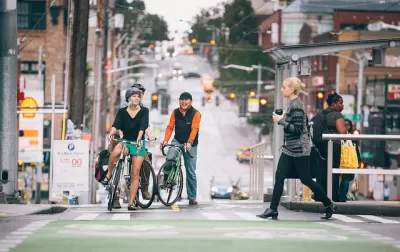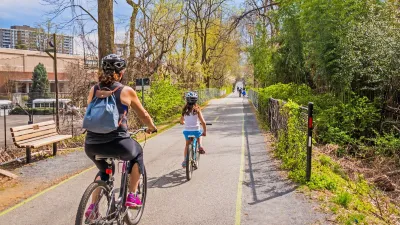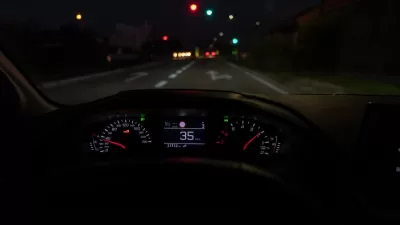Revenue from Washington's traffic enforcement cameras will go in part toward efforts to assist small communities in applying for grants and accessing funding opportunities.

Revenue from Seattle's traffic camera program earmarked for "bicycle, pedestrian, and nonmotorist safety improvements" will likely go toward capacity-building efforts geared at helping communities apply for grants and acquire funding for bike and pedestrian projects. As Ryan Packer reports, Washington's Traffic Safety Commission has proposed the plan as an alternative to using the funding to benefit a minimal number of individual projects.
According to a report from Washington DOT, "jurisdictions around the state are either unaware of the funding available from these programs, or lack knowledge of best practices around submitting an application." The plan aims to enable communities to submit strong applications and ensure they are aware of potential opportunities, which will serve to build institutional knowledge and financial resilience into the future.
WSDOT Director of Active Transportation Barb Chamberlain points out the highly competitive nature of the state's grants, calling for more funding from the state legislature for grant programs like Safe Routes to School. Since 2005, just 25 percent of applications for bike and pedestrian programs were funded. As the article states, "According to WSDOT, since 2005, only 45%, or 121, of the 281 incorporated cities and towns in Washington have received funding through the programs."
The source article details the governor's proposed budget increases and projected revenue from automated traffic enforcement, which Packer calls a "vital tool" for reimagining traffic enforcement and reducing police interactions.
FULL STORY: Seattle’s Traffic Camera Funds Earmarked for Statewide “Capacity Building” Efforts

Maui's Vacation Rental Debate Turns Ugly
Verbal attacks, misinformation campaigns and fistfights plague a high-stakes debate to convert thousands of vacation rentals into long-term housing.

Planetizen Federal Action Tracker
A weekly monitor of how Trump’s orders and actions are impacting planners and planning in America.

In Urban Planning, AI Prompting Could be the New Design Thinking
Creativity has long been key to great urban design. What if we see AI as our new creative partner?

How Trump's HUD Budget Proposal Would Harm Homelessness Response
Experts say the change to the HUD budget would make it more difficult to identify people who are homeless and connect them with services, and to prevent homelessness.

The Vast Potential of the Right-of-Way
One writer argues that the space between two building faces is the most important element of the built environment.

Florida Seniors Face Rising Homelessness Risk
High housing costs are pushing more seniors, many of them on a fixed income, into homelessness.
Urban Design for Planners 1: Software Tools
This six-course series explores essential urban design concepts using open source software and equips planners with the tools they need to participate fully in the urban design process.
Planning for Universal Design
Learn the tools for implementing Universal Design in planning regulations.
Gallatin County Department of Planning & Community Development
Heyer Gruel & Associates PA
JM Goldson LLC
City of Camden Redevelopment Agency
City of Astoria
Transportation Research & Education Center (TREC) at Portland State University
Jefferson Parish Government
Camden Redevelopment Agency
City of Claremont





























